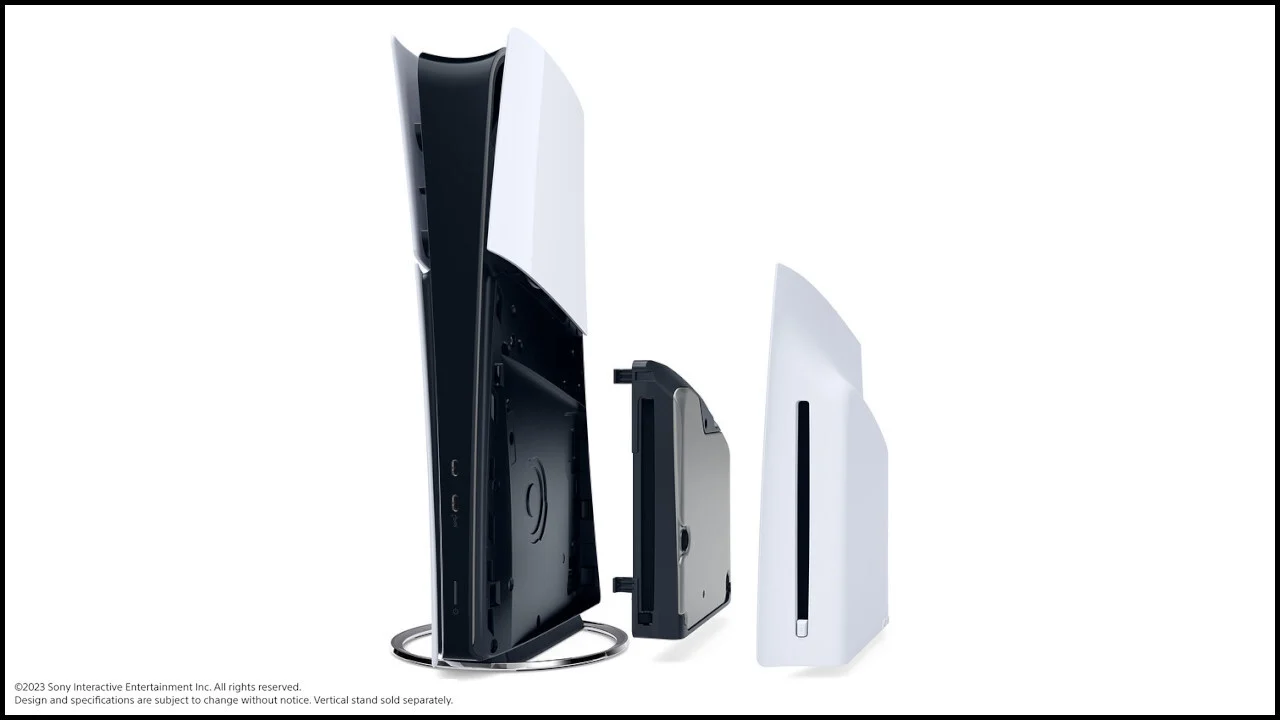“Requires”
Sony announced their Slim model of the PS5 a little while back, with news that it would come with an optional, detachable disc drive. Since a disc drive is a necessity for physical games, it’s hard to imagine that actual enthusiasts would be willing to do without one. Which is why it’s great that the PS5 slim will be available for purchase both with and without one, with the option to purchase one aftermarket. Especially as disc-based systems tend to have their disc drive as the most likely point of failure. There’s just one small problem…
Apparently, Sony decided that you should need an internet connection to pair the drive with the PS5.
Back on the 24th, Twitter account CharlieIntel posted images of the PS5 Slim/Call of Duty Modern Warfare III bundle. And the sharp-eyed noticed something in one of the images:
*Internet connection required to pair Disc Drive and PS5 console on setup.
There’s really only one way to take this, and it is basically hardware DRM. Presumably, Sony took this step in an attempt to curb piracy, because the drive is replaceable, and that means users could, hypothetically, buy a third party aftermarket drive (for piracy most foul). Which in the future may be your only option once the first party stuff stops being produced.
This is, however, consistent for Sony. Initially, they refused to allow additional internal storage for the PS5 (sad, as the PS4 made upgrading your internal storage incredibly easy). Moreover, Wired found that the original PS5 model had its disc drive permanently tied to the motherboard; that is to say, even if you replaced it with another genuine PS5 disc drive, it would refuse to recognize it as viable.
The Big Three have been increasingly protective of their hardware over the past few years. Notably, they’ve managed to be excluded from the upcoming right-to-repair legislation in California. They managed that by noting their chief concern being piracy through modified hardware. They’re not alone in this; the Internet of Things has prompted companies to try and lock down their hardware such that the end-user’s only option should be full unit replacement, which in turn feeds an ever-worsening user experience with your dishwasher or clothes dryer. And the less said about printers the better.
It is, however, notable that these sorts of decisions embolden the hacker community, if only to maintain basic usability if nothing else after a product’s end of life.
Source: Gizmodo

